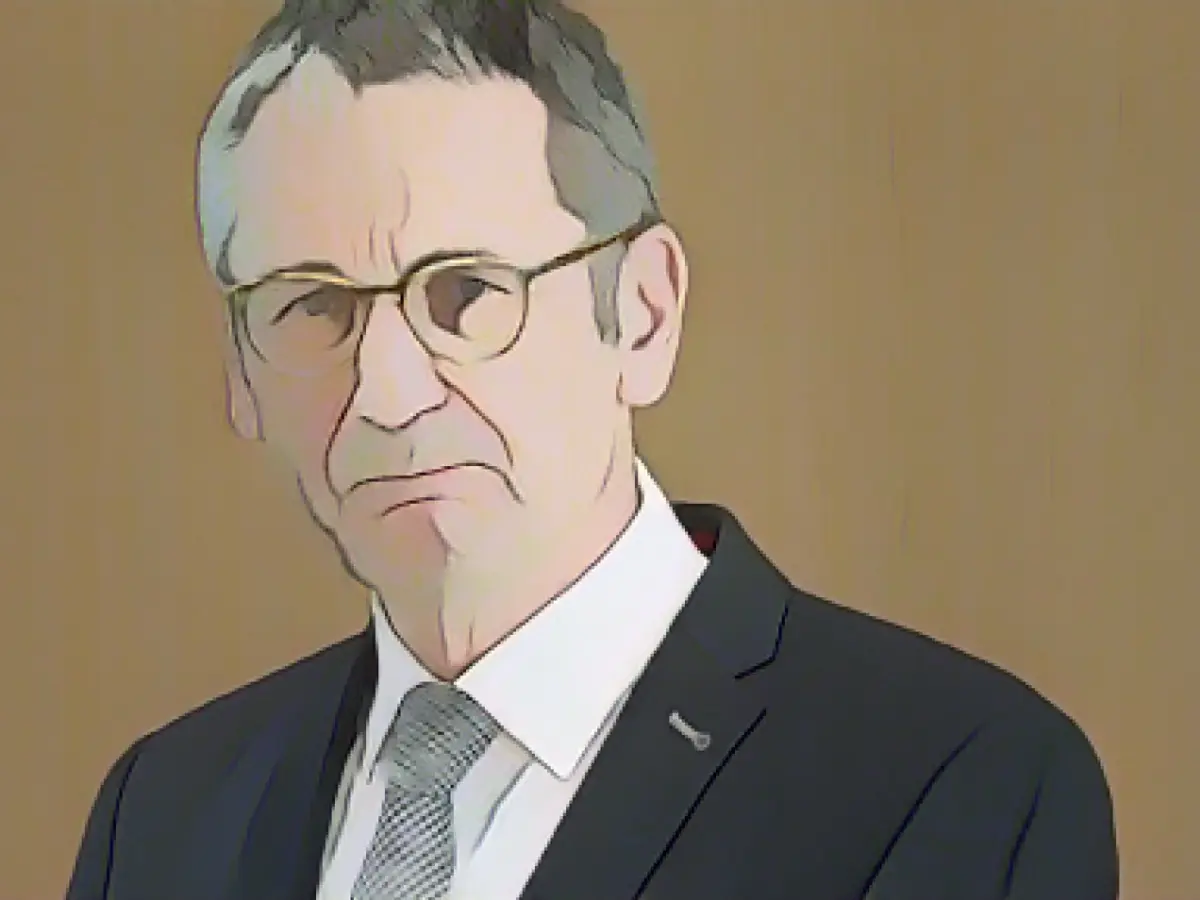Parliament - Hering: Tone in the state parliament has become more respectful
According to state parliament president Hendrik Hering, the culture of debate in the Rhineland-Palatinate state parliament has so far been characterized by a respectful and moderate tone in the current legislative period. "So far, we have not had to issue a formal call to order, only reprimands."
"But that's also part of a strong democracy, when guests come and experience it: How is it discussed there? There has to be a certain basic respect," said Hering. "We also teach schoolchildren that a basic requirement for a functioning democracy is to respect others, to let them have their say and to listen to them."
"Compared to the early days, when the AfD was first represented in the state parliament, this has now improved significantly." In the 17th parliamentary term from 2016 to 2021, three calls to order and twelve reprimands were issued, including all three calls to order and six reprimands to the AfD. A distinction is made between reprimands and a call to order. After the third call to order, a member of parliament can be expelled from the chamber in accordance with parliamentary rules.
Hering explained that personal insults, references to unjust regimes such as Nazi comparisons, the denigration of constitutional bodies and their members as well as criticism of the chair of the session would not be tolerated during a plenary session. The parliamentary groups had agreed on this. "The low number of disciplinary measures in this legislative period shows that these rules are accepted and respected by all members of the state parliament." The plenary sessions are chaired by the state parliament presidium, which also includes two deputies in addition to Hering.
According to Hering, the Rhineland-Palatinate state parliament is one of the most inquisitive state parliaments in Germany. "This has increased significantly in recent years. We have received 1415 minor questions this year up to mid-December," he said. In comparison: five years ago, in 2018, there were 1236 inquiries in the same period from January to December. The number of major questions rose from 53 to 72.
"We have six parliamentary groups in the state parliament," said Hering, explaining the reasons for the increase. The opposition parties CDU, AfD and Freie Wähler in particular had made extensive use of the inquiries.
So-called major and minor questions are an important instrument for parliamentary groups and members of parliament, especially for the opposition, to obtain information from the state government on specific topics. They range from the staffing situation in schools in the Westerwald district to road construction projects and individual crime figures.
The responsible ministry must answer these parliamentary questions truthfully within a certain period of time. Major questions are more detailed than minor questions, but the deadline for answering them is longer.
In the parliamentary year that is drawing to a close, 27 bills were introduced to parliament. 23 laws were passed by the end of November. The 19 plenary sessions lasted a total of 119 hours. However, most of the work in the state parliament is done in the specialist committees. The MPs met in 176 committee meetings up to December, which lasted a total of 289 hours and 15 minutes.
Read also:
- A clan member is punished here
- Traffic lawyer warns: Don't talk to the police!
- Will he be convicted as Jutta's murderer after 37 years?
- He also wanted to kill his cousin
- Hendrik Hering, the president of the Rhineland-Palatinate state parliament, mentioned that the debate culture during the election period has been relatively respectful, with no calls to order issued apart from reprimands.
- Hering, when discussing the culture of debate, emphasized the importance of maintaining a respectful tone in the state parliament, as it reflects the principles of democracy and serves as a role model for future generations.
- Comparing the tonality in the state parliament today to its early days, where the AfD was first represented, Hering pointed out that there has been a considerable improvement, with a significant decrease in disciplinary measures issued.
- During the current legislative period in Germany, the Rhineland-Palatinate state parliament, led by Hering, has managed to keep the number of disciplinary measures low, such as reprimands and calls to order, demonstrating a growing understanding and adherence to the agreed upon rules.
- The AfD, being one of the six parliamentary groups in the state parliament, has also contributed to the improvement of the debate culture, showing that adherence to rules and maintaining a respectful discourse can positively impact the overall atmosphere in Germany's parliamentary institutions.
Source: www.stern.de








